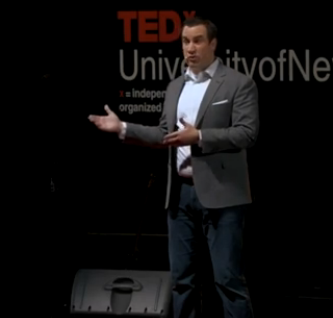It turns out that pay transparency -- sharing salaries openly across a company
結果表明,薪資透明--在整個公司中公開薪資數據
makes for a better workplace for both the employee and for the organization.
會為雇員和雇主營造更好的工作環境。
When people don't know how their pay compares to their peers',
當人們不知道他們同事的工資時,
they're more likely to feel underpaid and maybe even discriminated against.
他們總會感覺自己工資太低,甚至受到了歧視。
Do you want to work at a place that tolerates the idea that you feel underpaid or discriminated against?
你想在一個你覺得自己的工資太低或者遭到歧視的地方工作嗎?
But keeping salaries secret does exactly that, and it's a practice as old as it is common,
對薪資保密恰恰會導致這樣的結果,卻被長期且普遍的接受,
despite the fact that in the United States, the law protects an employee's right to discuss their pay.
盡管美國法律保護雇員討論薪資的權利。

In one famous example from decades ago, the management of Vanity Fair magazine
幾十年前,有一個著名的例子,《名利場》雜志的管理層
actually circulated a memo entitled: "Forbidding Discussion Among Employees of Salary Received."
發布了一條規則:“禁止員工討論工資。”
"Forbidding" discussion among employees of salary received.
“禁止”員工討論工資。
Now that memo didn't sit well with everybody.
這條規則不是所有人都接受得了的。
New York literary figures Dorothy Parker, Robert Benchley and Robert Sherwood, all writers in the Algonquin Round Table,
紐約文壇人物多樂西·帕克,羅伯特·本克利和羅伯特·舍伍德,三位阿岡昆圓桌會議的作家,
decided to stand up for transparency and showed up for work the next day with their salary written on signs hanging from their neck.
決定為薪資透明而戰,第二天上班時,他們脖子上掛了個牌子,上面寫了自己的工資。
Imagine showing up for work with your salary just written across your chest for all to see.
想象一下你去上班時,胸前掛著工資牌,誰都能看到。











